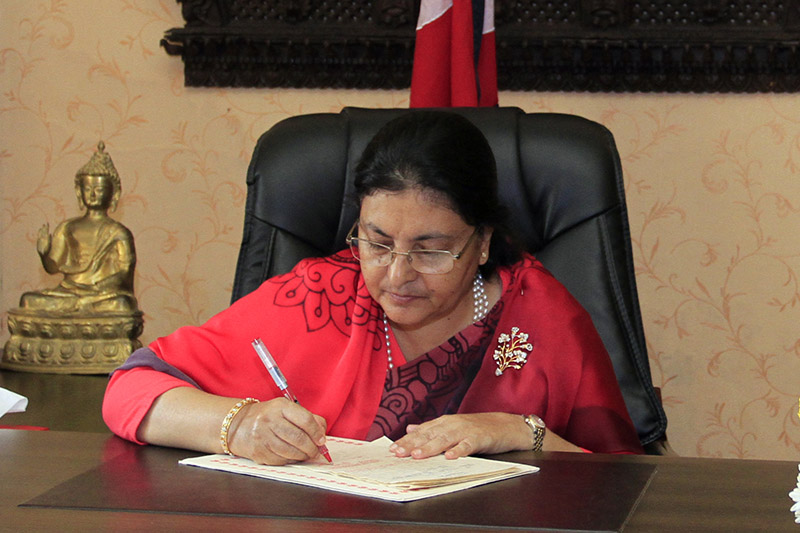Law aims to protect wild flora, fauna
- Anyone found guilty of wildlife crime will be liable to 15 years in jail or a fine of up to Rs 500,000, or both
Kathmandu, October 17
The International Trade in Endangered Species of Wild Fauna and Flora Control Bill, 2016 has taken the shape of Act after its authentication by President Bidhya Devi Bhandari.
The act criminalises the sale, purchase, possession, reproduction, import and export of endangered species of wild fauna and flora, while ensuring implementation of the Convention on International Trade in Endangered Species of Wild Fauna and Flora-1973 to which Nepal is a party.
Anyone found guilty of committing wildlife crime will be liable to up to 15 years jail sentence or a fine of up to Rs 500,000 or both, along with confiscation of the wildlife or flora and fauna or parts thereof.
The new law aims to protect wildlife against over-exploitation and prevent international trade in species threatened with extinction and authorise the Government of Nepal to put on trial any Nepali citizen who commits wildlife crime in foreign country as well. Endangered wild flora and fauna means any species or sub-species of wildlife or flora or parts thereof referred to in Apendix-1 of the convention.
The law has also provisioned a 12-member Endangered Wildlife and Flora and Fauna National Coordination Committee headed by secretary at the Ministry of Forest and Soil Conservation to recommend to the government necessary policy, legal and institutional measures to curb wildlife crimes.
“However, any person or organisation may be permitted to engage in sale, purchase, possession, reproduction, import and export of endangered species by acquiring license from Department of National Park and Wildlife Conservation or Department of Forests,” it reads.
If any person or organisation has obtained any wildlife or flora and fauna for study, research, test, training, exhibition, conservation education, bio-resource protection, educational activities and for any other purpose, they shall be required to get them registered with the agencies concerned.
The act allows officers from national parks, wildlife reserves, conservation areas and hunting reserves to probe into involvement of any person in activities prohibited by the law.
The government will act as plaintiff in cases filed under this law. The power to adjudicate the case will be with the concerned district court where the charge is filed.






